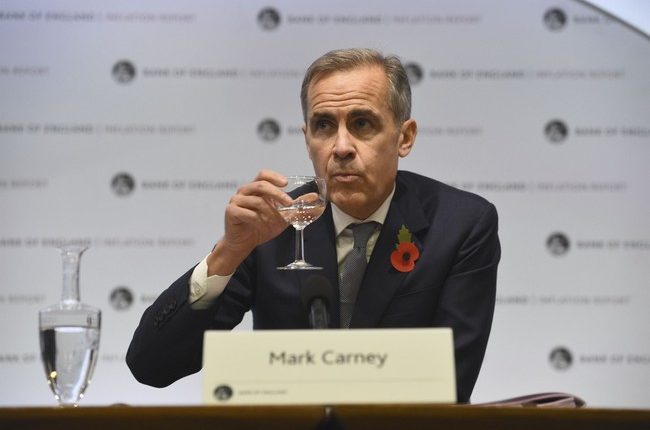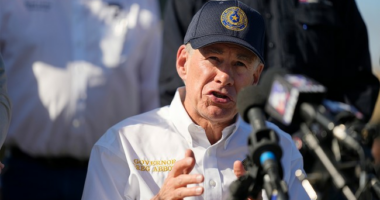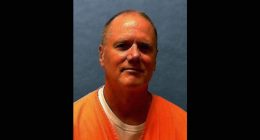
Every man is rich or poor according to the degree in which he can afford to enjoy the necessaries, conveniences, and amusements of human life. —Adam Smith, The Wealth of Nations, (I:V)
Most Canadians are aware, or were once aware, that the Liberal administration of Justin Trudeau effectively destroyed the country. As Conrad Black remarks, “The Trudeau government, partially under the intellectual and Mephistophelean influence of Mark Carney, presided over a dangerous net deficit of over $300 billion of excess capital leaving the country over the amount entering for investment in Canada. We have him to thank, in part, for carbon taxes, the non-construction of pipelines, mountainous deficits, and irresponsible bloating of the money supply. This is Mark Carney’s celebrated ‘experience’: that of being mistaken on every major issue.”
The moment is now ripe to punish the Liberals for their incompetence and ideological malignance. Yet in record time, the Conservatives’ nearly 30% lead in the polls evaporated, and we now find our new prime minister, Mark Carney, following Trudeau’s ignominious stepdown, either tied with or leading his rival Pierre Poilievre. Mesmerized by his rock-star reputation as a central banker, his aura of international cachet, and his anti-Trump, tough guy shtick, Canadians appear to have flocked to Carney’s gonfalon, embracing him as their savior and redeemer. This, despite the fact that Carney was Trudeau’s advisor for 5 years, helms the same hackneyed Party and has retained fully 97% of Trudeau’s cabinet.
It might help if Canadians would actually take the trouble to consult Carney’s 500+ page, 2021 manifesto “Value(s),” though I couldn’t fault their reluctance since the book is a morbidly dull, cliché-ridden, jargon-dense mishmash of globalist porridge, tarted with acronyms: ESG (Environment, Social, Governance), TCFDs (Taskforce Climate-related Financial Disclosures), SDGs (Sustainable Development Goals), NDCs (National Determined Contributions), and others that constrict the alphabet into code so that no ordinary person knows what Carney is talking about but is presumably mightily impressed. How could we reject an agenda replete with developing policies, regulations, and incentives and promoting behavioral changes to create a pristine world never seen until Carney and those like him appeared on the scene? Anyone who believes in this gobbledygook seriously needs to be reintroduced to the real world.
I have the impression that most Canadians aren’t even aware that Carney wrote a book in the first place. They would do well to educate themselves, look it up, and make the effort at the very least to skim, given that the book is, admittedly, largely unreadable. But this is Canada. We’re passionate about the environment, we hate carbon, we love wind farms, we’re so much better than those vulgar Americans, we think Trump is really Hitler redivivus, and besides, books are an outmoded technology and print is dead, so why should we trouble ourselves to accommodate the past, even the immediate past, in ways more reliable and comprehensive than digitized information?
If they did break the book’s spine, Canadians would find that Carney touts a Communist China-style social credit system in which human behavior will be strictly monitored, surveyed, and controlled. Our money will be digitally tracked; ESG policy will ensure that corporations serve the will of the political administration disguised as saving the planet; technocratic control and the “rule of experts” will replace democratic traditions and individual choice; and salient institutions will be under the sway of foreign entities like the World Economic Forum and the World Health Organization.
As governor of the Bank of England, Carney’s advocacy and support for the Network for Greening the Financial System proved to be extremely influential and was immediately hailed by the C40Cities Climate Leadership Group as an inspiration and significant spur to action. The organization’s principals write, “As Mark Carney, the Bank of England’s governor, has once again highlighted, climate change poses a key threat to the global financial system. His urge to central banks and supervisors to take bold steps to green the financial system is highly welcome.”
What are some of these bold steps? If you delve deep enough into the pro-Carney C40 document, you discover that the outfit proposes “eliminating the need for car ownership”; “a 28% reduction in the number of flights over C48 cities”; “a reduction in new items of clothing to as low as 3 per person per year”; and “moving to a plant-based diet.” What’s not to like? “Firms that align their business models with the transition to a net-zero carbon economy will be rewarded handsomely; those that fail to adapt will cease to exist,” pontificates the master of the universe, as he reiterates in the final report of the Glasgow Financial Alliance for Net Zero (GFANZ), a company he founded in 2021. The hydrocarbon resources that power our industrial, energy, and agricultural economies will remain “in the ground.” And so, of course, will the country.
“In Carney’s world,” writes David Staples in the Edmonton Journal, “we won’t be focused on efficiency and prosperity, but on asking whether every stock we buy and every purchase we make comes from a company with a stamp of approval from Ottawa’s climate bureaucracy. Regulations, rules, mandates, prohibitions, taxes and subsidies will direct our economy.” This is what Carney in his book calls a “fundamental reordering of the financial system so that all aspects of finance — investments, loans, derivatives, insurance products, whole markets — systematically take the impact of their actions in the race to net zero.”
Carney must be right in diagnosing the market ills of Western society and prescribing a prosthetic workaround amounting to owning nothing and being happy, since he is the UN Special Envoy for Climate Action and Finance and was formerly governor of both the Bank of England and the Bank of Canada. But thinking it over, not so fast. One observes that his professional experience is confined to the narrow and airless world of fiscal theory, that he has never really worked productively among the people for a living, that he is a shameless liar, and, according to former British PM Liz Truss, he is the kiss of death. “I strongly recommend not backing Mark Carney for his policies on Net Zero,” she warned, “It was disastrous for Britain. It would be disastrous for Canada.”
It’s all there in his book. The problem is that, with too few exceptions, Canada is not a nation of readers. But one would expect that Canadians are at least capable of remembering a decade of misrule and observing the social, cultural, political, and economic damage that Justin Trudeau, his shadowy doppelgänger Mark Carney, now his unelected replacement, and a complaisant parliament and Liberal-appointed judiciary have wrought upon the nation.
But Canadians seem to be all in for Carney, as the latest polls confirm. They may not have bought his book, but they’ve bought the back-cover hype informing us that Carney is “one of the great economic thinkers of our time.” Really? I might have ventured Adam Smith, David Ricardo, Thomas Sowell, or Milton Friedman. But Mark Carney? He is not even in the same dismal category as celebrated nonentities like Janet Yellen or Paul Krugman, both journeymen incompetents. Moreover, Carney’s pretentious subtitle to “Value(s),” “Building a Better World for All,” elevates him to the same moral level as, say, Jesus Christ. Who the hell does he think he is? No single human person is capable of so celestial a task. One recalls Adam Smith’s famous obiter dicta in The Wealth of Nations (IV:II), “I have never known much good done by those who affected to trade for the publick good.”
Carney has vowed to reverse some of Trudeau’s contested policies, but his dossier and years of published opinions augur otherwise. As MP Todd Doherty, one of many Carney skeptics, writes, “Mark Carney has spent his entire life advancing his keep it in the ground energy policy. Now, on the eve of an election Carney is saying he will build oil and gas projects.” Let’s face facts. Carney is on record stating, “Maybe half as much of oil reserve will stay in the ground.” He is a lifelong proponent of stranded assets. David Staples goes further. “In total,” he writes, “80 per cent of fossil fuel reserves (75 per cent of coal, 50 per cent of gas, 33 per cent of oil) will need to stay in the ground, ‘stranding these assets,’ as Carney puts it. Other stranded assets will include hundreds of billions in automotive plants.”
The Fraser Institute puts it succinctly: “Carney is a climate zealot. He may try to fool Canadians into thinking he wants new pipelines, liquified natural gas (LNG) terminals and other hydrocarbon infrastructure, but he doesn’t. Far from it. He wants half the existing ones gone by 2030 and the rest soon after.”
He is now proposing to “build a new Canadian economy,” which echoes his “build back better” and Trudeau’s failed “Green” transition, and he is also fine with Trudeau’s censoring — aka “regulating” — online content. Absent an electoral miracle, Canada is cooked. There isn’t much we can do about it except to sound the alarm. Caveat suffragatores.
Editor’s Note: Do you enjoy PJ Media’s conservative reporting taking on the radical left and woke media? Support our work so that we can continue to bring you the truth. Join PJ Media VIP and use the promo code FIGHT to get 60% off your VIP membership!








